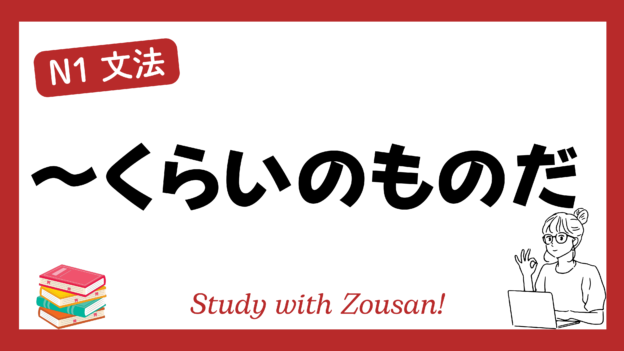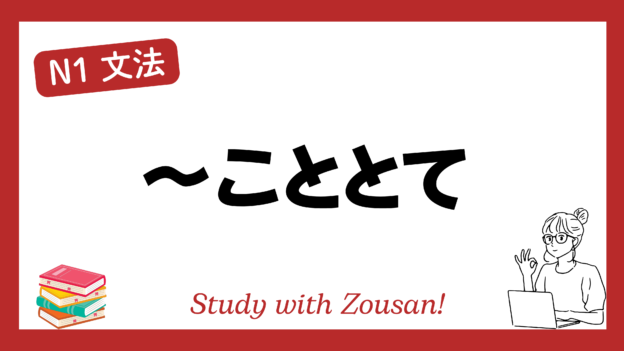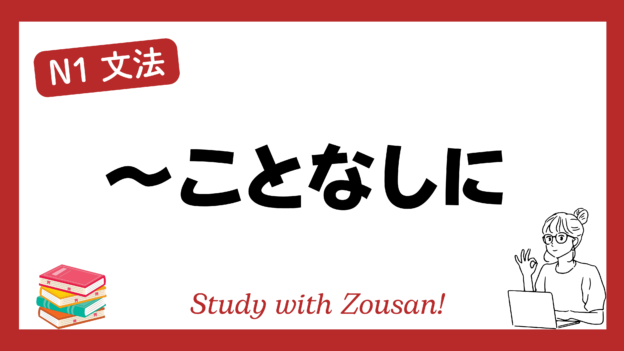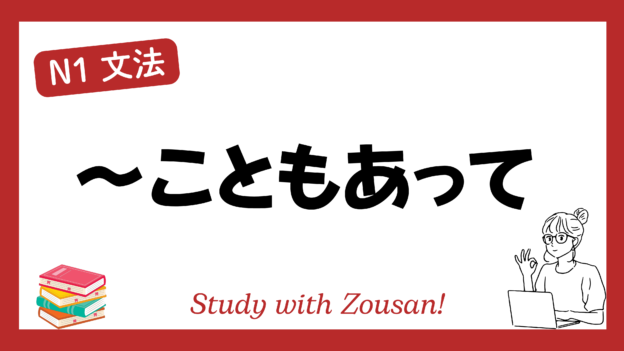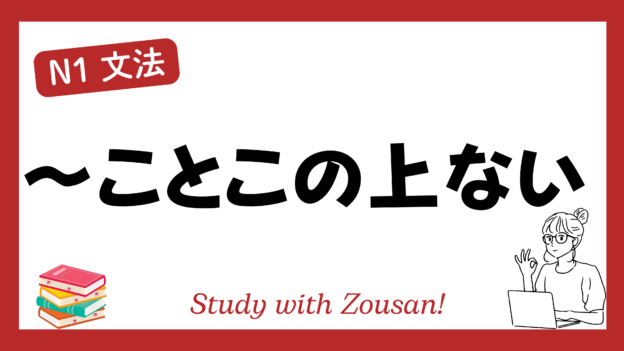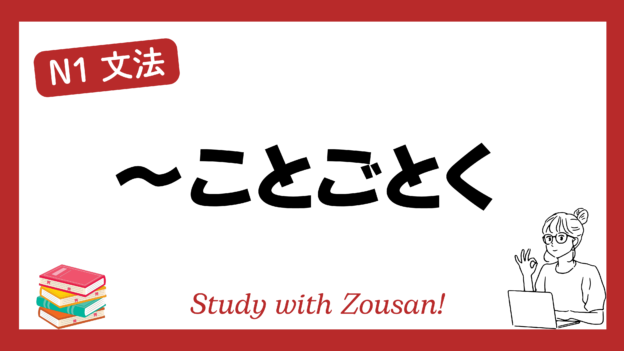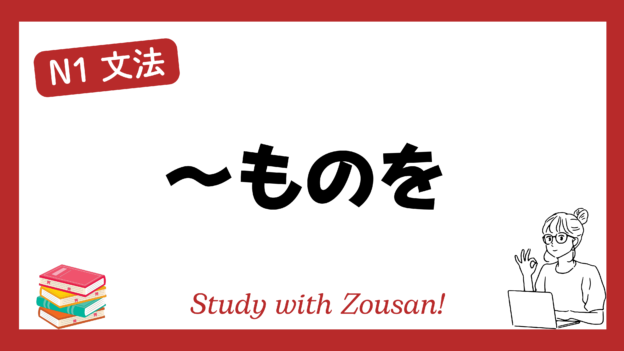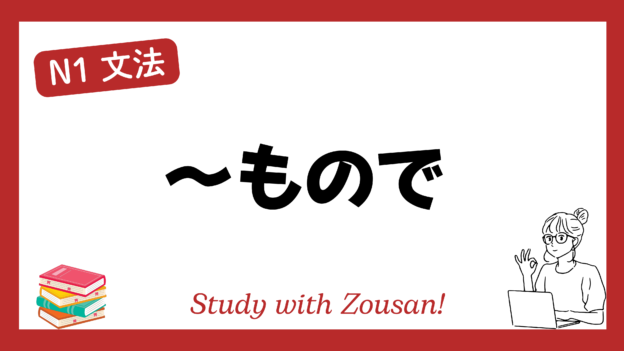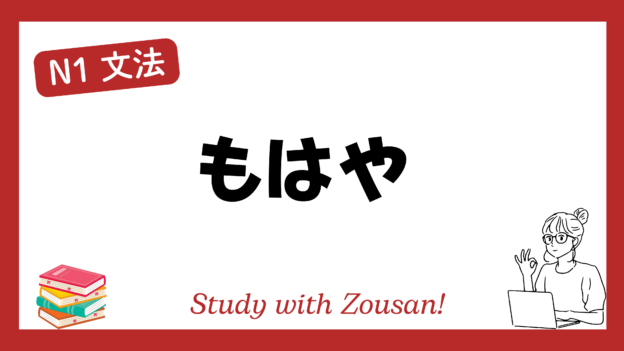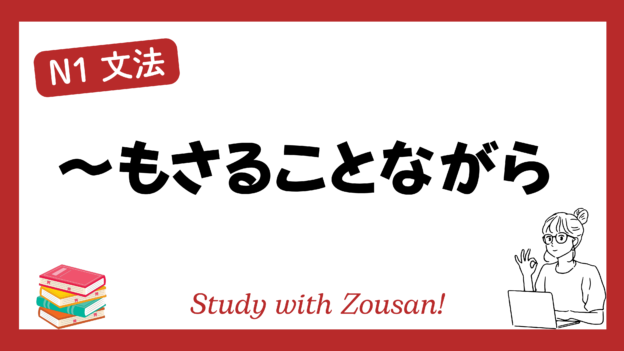Meaning: “Only…”, “It’s only…”
This structure is used to emphasize that only one person or condition is appropriate or likely to occur in a given situation. It conveys that aside from the mentioned subject, no other options are suitable.
※Note: “~くらいのものだ” is often used to make a strong assertion, emphasizing that the event or condition mentioned is the only possible one.
Structure:
| Noun + | くらい + ぐらい + |
のものだ なものだ |
Example:
-
-
-
🌟 この仕事を任せられるのは、君くらいのものだ。
(この しごと を まかせられる の は、きみ くらい の もの だ。)
You are the only one who can be trusted with this job. -
🌟 こんな難しい問題を解けるのは、彼くらいのものだ。
(こんな むずかしい もんだい を とける の は、かれ くらい の もの だ。)
He is the only one who can solve such a difficult problem. -
🌟 このチームをまとめられるのは、リーダーくらいのものだ。
(この チーム を まとめられる の は、リーダー くらい の もの だ。)
Only the leader can bring this team together. -
🌟 こんなに早く走れるのは、彼くらいのものだ。
(こんなに はやく はしれる の は、かれ くらい の もの だ。)
He is the only one who can run this fast. -
🌟 この問題に気づくのは、専門家くらいのものだ。
(この もんだい に きづく の は、せんもんか くらい の もの だ。)
Only an expert would notice this problem. -
🌟 こんなに細かい作業ができるのは、彼女くらいのものだ。
(こんなに こまかい さぎょう が できる の は、かのじょ くらい の もの だ。)
She is the only one who can do such delicate work. -
🌟 彼の性格を理解できるのは、彼女くらいのものだ。
(かれ の せいかく を りかい できる の は、かのじょ くらい の もの だ。)
She is the only one who can understand his personality. -
🌟 こんなに大きなプロジェクトを成功させるのは、あのチームくらいのものだ。
(こんなに おおきな プロジェクト を せいこう させる の は、あの チーム くらい の もの だ。)
Only that team can succeed with such a big project. -
🌟 こんな状況で冷静でいられるのは、彼くらいのものだ。
(こんな じょうきょう で れいせい で いられる の は、かれ くらい の もの だ。)
He is the only one who can remain calm in such a situation. -
🌟 このアイデアを実現できるのは、あの企業くらいのものだ。
(この アイデア を じつげん できる の は、あの きぎょう くらい の もの だ。)
Only that company can realize this idea.
-
-


